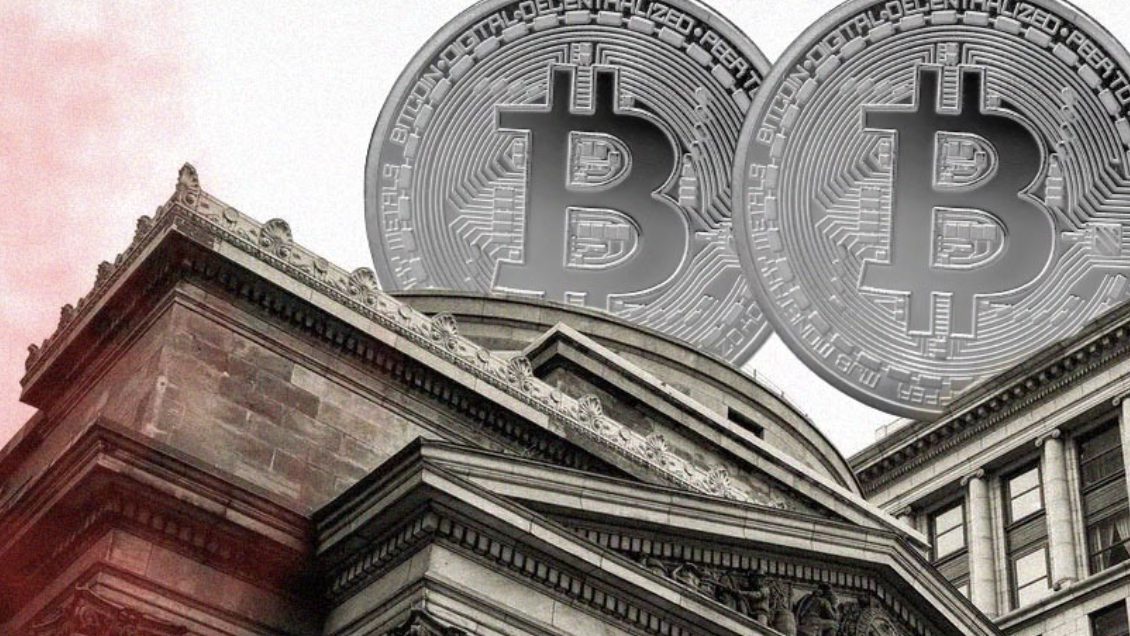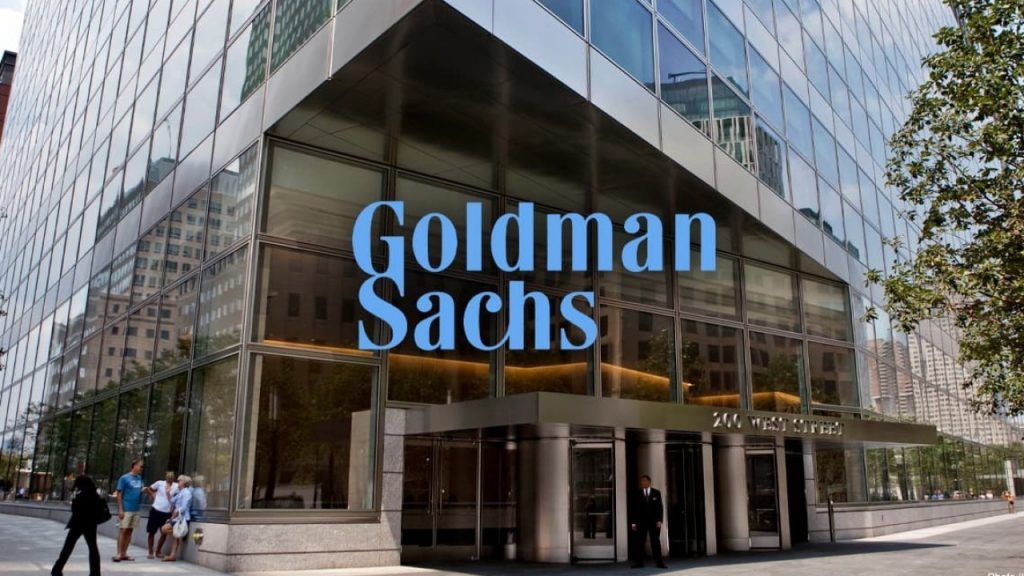Crypto
How Many Banks are Using Cryptocurrency?

How Many Banks Are Using Cryptocurrency?: Exploring the Adoption of Cryptocurrency by Banks
Cryptocurrency has gained significant traction in recent years, and financial institutions are not immune to its allure.
As the crypto industry expands, many banks recognize the potential benefits of integrating digital assets and blockchain technology into their operations.
In this article, we will explore the adoption of cryptocurrency by financial institutions, delving into the reasons behind their involvement and the challenges they face.
Also read: Which Banks Use Ripple XRP?
The Rising Interest in Financial Institutions
Financial institutions, including banks, have started showing keen interest in the crypto industry. This interest can be attributed to several factors.
First and foremost, banks recognize the potential for financial gain. Understanding this will help us understand How Many Banks are Using Cryptocurrency.
Do any banks use cryptocurrency? How Many Banks Are Using Cryptocurrency?
In short, yes.
With the total market capitalization of cryptocurrencies exceeding $2 trillion, it is no surprise that banks want a piece of the pie.
Banks aim to capitalize on cryptocurrencies’ growing popularity and value by investing in blockchain companies and digital currencies.
Additionally, financial institutions are attracted to the transparency and security offered by blockchain technology.
Furthermore, the immutable nature of blockchain ensures that transactions are recorded accurately and cannot be altered, reducing the risk of fraud and enhancing the overall security of financial transactions.
This aspect particularly appeals to banks, as it aligns with their commitment to providing secure and reliable financial services to their customers.
Which big banks adopt crypto?
So, how many banks are using cryptocurrency? Here they are.
Banks’ Involvement in the Crypto Industry
Additionally, several major banks have already invested significantly in the crypto industry. Let’s explore some of the prominent players in this space:
1. Standard Chartered: Leading the Way

Standard Chartered, a London-based bank, has emerged as a leader in cryptocurrency adoption.
Additionally, with a valuation of $380 million and six investments in blockchain companies, Standard Chartered has positioned itself as a frontrunner in exploring the potential of digital assets.
Notably, the bank has invested in Ripple, a blockchain network with its own digital token, XRP, and Cobalt, a UK-based trading technology provider.
2. BNY Mellon: Embracing Crypto Custody

Following the above, BNY Mellon, a renowned financial institution, has recognized the growing demand for crypto custody services.
Further, with investments totaling $321 million and five investments, BNY Mellon has focused on companies like Fireblocks that provide secure storage and movement of cryptocurrencies.
This emphasis on custody services highlights the bank’s commitment to meeting the evolving needs of its clients in the digital age.
3. Citibank: Exploring Blockchain Technology
Citibank, one of the largest banks in the United States, has made substantial investments in blockchain companies, totaling $279 million across 14 investments.
Among its notable investments is SETL, a company that utilizes ledger technology to facilitate the transfer of assets.
Furthermore, Citibank’s involvement in blockchain technology showcases its dedication to exploring innovative solutions for financial transactions.
4. UBS: Modernizing Capital Markets
UBS, a Swiss banking heavyweight, has invested $266 million across five investments, focusing on companies like Axoni. Axoni specializes in modernizing infrastructure in capital markets using blockchain technology.
UBS’s investment in Axoni reflects its commitment to embracing blockchain to enhance efficiency and transparency in the financial industry.
5. BNP Paribas: Leveraging Smart Contracts
BNP Paribas, a prominent French financial group, has invested $236 million in nine blockchain companies.
One notable investment is in Digital Asset, which develops real-time trade and settlement applications using smart contracts. By exploring the potential of smart contracts, BNP Paribas aims to streamline financial processes and improve operational efficiency.
6. Morgan Stanley: Embracing Crypto Custody
Morgan Stanley, a renowned investment bank, has recognized the growing importance of crypto custody services and has invested $234 million in three blockchain companies.
One of its notable investments is NYDIG, a crypto custody firm and a subsidiary of Stone Ridge, an alternative asset manager. Morgan Stanley’s involvement in crypto custody highlights its commitment to providing secure storage solutions for digital assets.
7. JP Morgan Chase: Backing the Ethereum Software Company
JP Morgan Chase, the largest bank in the United States, has invested $206 million across eight blockchain companies. Notably, the bank has backed ConsenSys, a leading Ethereum software company.
This investment showcases JP Morgan Chase’s belief in the potential of Ethereum and its commitment to exploring the possibilities blockchain technology offers.
8. Goldman Sachs: Accessing Blockchain Data

Following Chase, Goldman Sachs, a renowned investment bank, has invested $204 million across eight blockchain companies, including Coin Metrics, a provider of blockchain data to institutional clients.
Additionally, by accessing blockchain data, Goldman Sachs aims to gain insights into market trends and make informed investment decisions.
9. MUFG: Investing in Cryptocurrency Exchanges
Mitsubishi UFJ Financial Group (MUFG), a Japanese banking giant, has invested $185 million across six blockchain companies. MUFG’s investments include Coinbase, a US-based cryptocurrency exchange, and Bitflyer, a Tokyo-based cryptocurrency exchange.
By investing in cryptocurrency exchanges, MUFG aims to position itself at the forefront of the crypto industry in Japan.
10. ING: Supporting Blockchain Liquidity Management
ING, a Dutch multinational banking and financial services corporation has invested $170 million across six blockchain companies. Notably, ING has backed HQLAx, a blockchain liquidity management platform.
This investment reflects ING’s commitment to exploring innovative solutions for enhancing liquidity management in the financial industry.
11. BBVA: Exploring Identity Verification
BBVA, a Spanish multinational financial services company, has invested $167 million across five blockchain companies. BBVA’s investments include Covault, which focuses on storing, sharing, and verifying identities using blockchain technology.
BBVA aims to enhance security and trust in financial transactions by exploring identity verification solutions.
12. Nomura: Backing Blockchain Security
Nomura, a Japanese financial services group, has invested $146 million across five blockchain companies. One notable investment is in Quantstamp, a blockchain security firm. Nomura’s investment in Quantstamp highlights its commitment to ensuring the security and integrity of blockchain-based transactions.
13. Barclays: Connecting Advisors and Investors
Barclays, a British multinational bank, has made 22 investments totaling $12 million in various blockchain companies. One notable investment is in RealBlocks, a tech platform that connects advisors and investors to alternative investment managers.
Barclays’ involvement in RealBlocks showcases its commitment to facilitating access to alternative investment opportunities through blockchain technology.
These banks represent a fraction of the financial institutions that have recognized the potential of the crypto industry and made investments accordingly.
Their involvement ranges from exploring blockchain technology to providing crypto custody services, reflecting a growing acceptance of digital assets in the traditional banking sector.
Also read: Shibarium Beta Puppynet Activity Suspended as Mainnet Launch Nears
Overcoming Challenges and Ensuring Compliance

While financial institutions increasingly embrace cryptocurrency, they face several challenges in navigating this evolving landscape.
One significant challenge is regulatory compliance. As digital currencies continue to gain popularity, regulators worldwide are working to establish frameworks to govern their use and mitigate risks such as money laundering and fraud.
Financial institutions must comply with anti-money laundering (AML) and know-your-customer (KYC) regulations when facilitating crypto transactions.
This involves implementing robust compliance measures to verify customers’ identities when engaging in crypto-related activities and monitor transactions for suspicious activities.
By adhering to these regulations, banks can maintain the financial system’s integrity and protect their customers from potential risks.
Another challenge for financial institutions is integrating blockchain technology into their existing systems. Blockchain technology offers numerous benefits, including enhanced security, transparency, and efficiency.
However, incorporating blockchain into traditional banking infrastructure requires careful planning and implementation. Banks must invest in the necessary infrastructure and talent to seamlessly integrate blockchain technology while ensuring the security and reliability of their systems.
The Future of Cryptocurrency Adoption by Banks
As the crypto industry continues to evolve, the adoption of cryptocurrency by financial institutions is expected to increase. Central banks worldwide are exploring the concept of central bank digital currencies (CBDCs), digital representations of fiat currencies.
CBDCs can potentially revolutionize the financial industry by offering faster, more secure, and more cost-effective digital transactions.
Furthermore, developing smart contracts and decentralized finance (DeFi) platforms opens up new possibilities for financial institutions.
Smart contracts are self-executing contracts that automatically execute predefined actions when specific conditions are met. This technology can streamline complex financial transactions and reduce the need for intermediaries.
Conclusion
In conclusion, financial institutions increasingly recognize the potential benefits of cryptocurrency and blockchain technology.
Furthermore, banks aim to capitalize on the growing popularity and value of cryptocurrencies by investing in blockchain companies and exploring the integration of digital assets into their operations.
However, they must also navigate regulatory challenges and ensure AML and KYC regulations compliance. As the crypto industry continues to mature, the involvement of financial institutions is expected to grow, ushering in a new era of digital finance.

Crypto
Truth Social Files for Cryptocurrency Blue-Chip ETF

Truth Social, the social media platform backed by former U.S. President Donald Trump, has submitted an application for a cryptocurrency blue-chip ETF S-1 filing. This move marks a significant shift for the platform, which has been primarily known for its social media presence, into the realm of cryptocurrency investments. The filing indicates that Truth Social is aiming to capitalize on the growing interest in digital assets, particularly among its user base, which includes a significant number of individuals who are already engaged with cryptocurrencies.
The Trust’s assets are primarily composed of Bitcoin (BTC), Ethereum (ETH), Solana (SOL), Ripple (XRP), and Cronos (CRO) held by the Trustee. Under the terms of the Trust Agreement, the Trust will allocate its assets to a percentage of the portfolio assets (allocation ratio) initially expected to be approximately 70% Bitcoin, 15% Ethereum, 8% SOL, 5% CRO, and 2% XRP. This allocation reflects a strategic focus on blue-chip cryptocurrencies, which are seen as more stable and less speculative compared to smaller, more volatile tokens.
The decision to file for a cryptocurrency ETF comes at a time when the cryptocurrency market is experiencing renewed interest. The market has seen a resurgence in activity, driven by factors such as declining interest rates and a more crypto-friendly regulatory environment. This shift has led many investors to reconsider their positions in cryptocurrencies, particularly in blue-chip tokens like Bitcoin and Ethereum.
The filing for a cryptocurrency ETF is a significant step for Truth Social, as it allows the platform to offer its users a more diversified investment option. By providing access to a blue-chip cryptocurrency ETF, Truth Social can attract a broader range of investors who are looking for a more secure and regulated way to invest in digital assets. This move also positions Truth Social as a forward-thinking platform that is adapting to the evolving financial landscape, where cryptocurrencies are becoming an increasingly important part of the investment ecosystem.
The submission of the S-1 filing is a crucial step in the process of launching an ETF. It involves providing detailed information about the fund’s structure, investment strategy, and risk factors to regulatory authorities. Once approved, the ETF will allow investors to gain exposure to a basket of blue-chip cryptocurrencies without having to directly purchase and manage individual tokens. This can be particularly appealing to investors who are new to the cryptocurrency market or who prefer the convenience and security of an ETF.
The filing also highlights the growing integration of cryptocurrencies into mainstream financial products. As more platforms and companies enter the cryptocurrency space, the demand for regulated and secure investment options is likely to increase. This trend is driven by the recognition that cryptocurrencies offer unique benefits, such as decentralization, transparency, and the potential for high returns, which make them an attractive addition to traditional investment portfolios.
In summary, Truth Social’s submission of a cryptocurrency blue-chip ETF S-1 filing is a strategic move that reflects the platform’s commitment to innovation and its recognition of the growing importance of cryptocurrencies in the financial landscape. By offering a regulated and secure investment option, Truth Social can attract a broader range of investors and position itself as a leader in the evolving world of digital assets.
Crypto
Top Cryptocurrency Stocks To Add to Your Watchlist

Crypto
Adecoagro Partners With Tether to Pioneer Renewable Energy Use for Bitcoin Mining in Brazil – Mining Bitcoin News

-

 Politics1 week ago
Politics1 week agoTrump administration takes on new battle shutting down initial Iran strike assessments
-

 World1 week ago
World1 week agoUganda’s President Museveni confirms bid to extend nearly 40-year rule
-
News1 week ago
Live updates: Republicans race to meet Trump’s July 4 deadline for agenda bill | CNN Politics
-

 Business5 days ago
Business5 days agoSee How Trump’s Big Bill Could Affect Your Taxes, Health Care and Other Finances
-

 Culture5 days ago
Culture5 days ago16 Mayors on What It’s Like to Run a U.S. City Now Under Trump
-

 Politics4 days ago
Politics4 days agoVideo: Trump Signs the ‘One Big Beautiful Bill’ Into Law
-

 Technology1 week ago
Technology1 week agoHollywood’s pivot to AI video has a prompting problem
-

 Science5 days ago
Science5 days agoFederal contractors improperly dumped wildfire-related asbestos waste at L.A. area landfills















